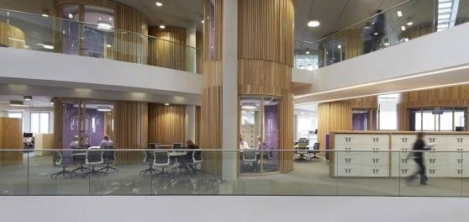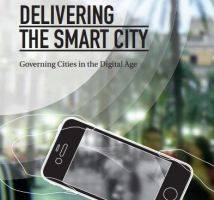April 14, 2015
The workplace as a strategic resource: a real life CEO’s perspective
 Raise your hand if you agree: “The workplace is obviously a strategic resource.” We facilities management professionals know that to be true. But if you often feel like a voice in the wilderness when speaking to anyone other than a fellow workplace professional, you are not alone. For many if not most senior executives, their facilities are a necessary evil that always cost too much. That reality frustrates me as much as it does you. So my colleague Paul Carder and I conducted two extensive research projects in 2012 and 2013 aimed at making the case (mostly to FM professionals themselves) that facilities and workplaces are incredibly strategic – and very poorly understood. And while we’ve gotten a lot of positive feedback about the work, we haven’t seen much change in mindsets, management practices or outcomes.
Raise your hand if you agree: “The workplace is obviously a strategic resource.” We facilities management professionals know that to be true. But if you often feel like a voice in the wilderness when speaking to anyone other than a fellow workplace professional, you are not alone. For many if not most senior executives, their facilities are a necessary evil that always cost too much. That reality frustrates me as much as it does you. So my colleague Paul Carder and I conducted two extensive research projects in 2012 and 2013 aimed at making the case (mostly to FM professionals themselves) that facilities and workplaces are incredibly strategic – and very poorly understood. And while we’ve gotten a lot of positive feedback about the work, we haven’t seen much change in mindsets, management practices or outcomes.






















March 13, 2015
It’s worth exploring alternative forms of finance for office fit out
by Mark Eltringham • Comment, Facilities management, Workplace design
(more…)